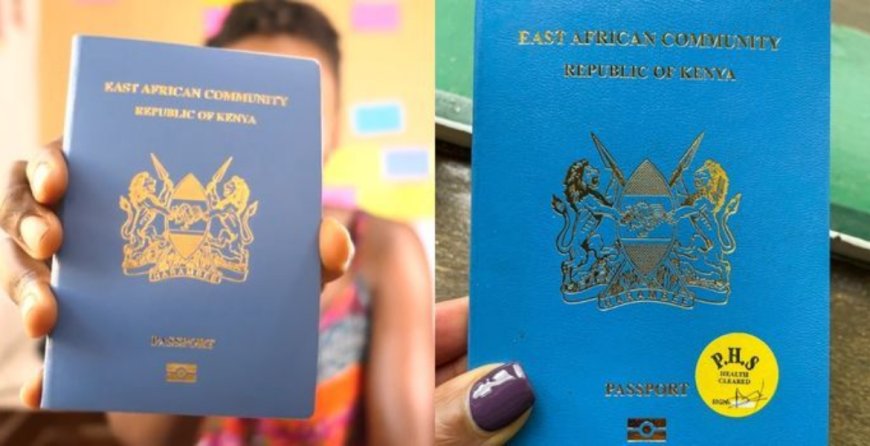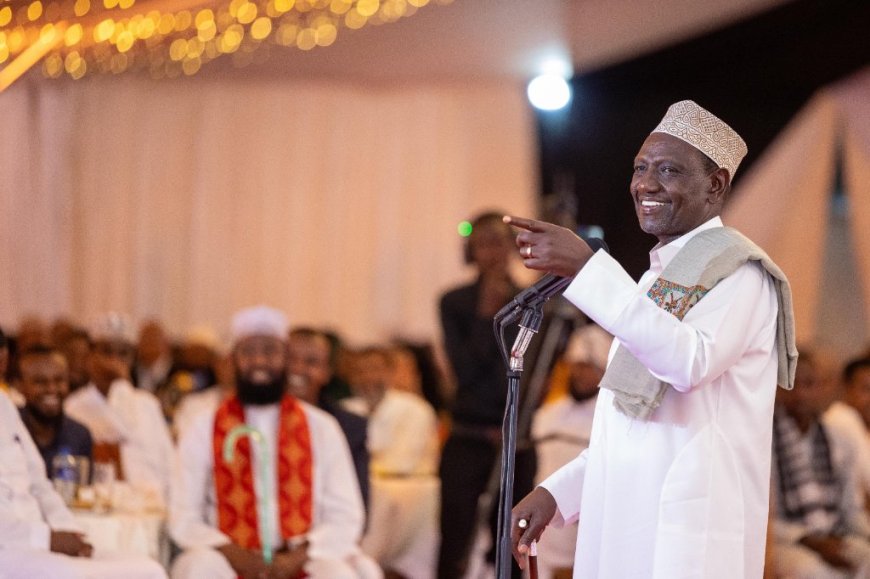Kenyans To Get Passports In 14 Days; Govt To Print 600 Copies In One Hour
Immigration and Citizen Services Principal Secretary, Prof. Julius Bitok in a statement on Friday, April 12 announced that the government intends to print at least one million passports in 2024.

Kenyans are set to acquire new passports in 14 working days following the government's intention to significantly increase the production and issuance of passports following the arrival of two new machines.
Immigration and Citizen Services Principal Secretary, Prof. Julius Bitok in a statement on Friday, April 12 announced that the government intends to print at least one million passports in 2024.
The PS who spoke in Mombasa during the annual planning meeting of senior managers for agencies and directorates under the State Department said the two new passport printing machines had already been delivered for installation in Nyayo House.
He noted that the new passports target is nearly double the 533,000 issued in the previous year with the higher output pegged on the combined printing capacity of 600 passports per hour by the new machines.

Immigration PS Julius Bitok holding a box of passport booklets on Wednesday, April 5, 2023. /FACEBOOK.JULIUS BITOK
Their installation is therefore expected to reduce the waiting time for issuing passports to less than 14 working days.
“We will be commissioning the new printers next week. We are determined to render delays in the issuance of passports a thing of the past as we have secured the necessary resources to procure sufficient booklets and other recurrent expenses," he stated.
The PS further revealed that the government intends to decentralise access to passports, permits and other services.
This will be achieved thanks to the Directorate of Immigration aiming to open new offices in Nyeri, Bungoma and Garissa and invest in government-owned passport and border management systems to provide real time data on the entry and exit of all travellers.
"In the same period, the government hopes to issue 1.2 million digital National ID cards to first-time applicants and 1.6 million duplicate IDs to build on to the 733,000 Maisha cards it has been issued so far," the statement read in part.
In line with the presidential directive, the vetting of ID applicants in Northern Kenya and other border regions as a prerequisite for registration will cease beginning in May.
President William Ruto had announced the removal of vetting during the applications for National Identification cards (IDs) following complaints that the process was discriminatory, asserting the country's need for one process that would apply to all Kenyans irrespective of their ethnicity or religious background.
"We have now completed the policy document and from the beginning of May this year, there will no longer be vetting for people who want to get IDs. I am going to be issuing a policy document to make sure that we have a mechanism for all Kenyans so that we do not discriminate on the basis of region or religion," he stated while hosting an Iftar Dinner at State House on Monday, April 8
"We are still going to be vigilant in terms of security but that should not be a basis for people to be discriminated."
Bitok meanwhile added that also on target is the digitisation of 46 million records on births and deaths in the country held by the Civil Registration Services and 2 million records under the custody of the National Registration Bureau.
"On eCitizen, it is projected that the number of services available on the platform will grow to 20,000 from the current 16,000 pushing the total number of average daily users to above one million," he added.
Also planned for is the fast-tracking of documentation and registration of around 200,000 illegal immigrants and displaced foreigners believed to be in the country.







